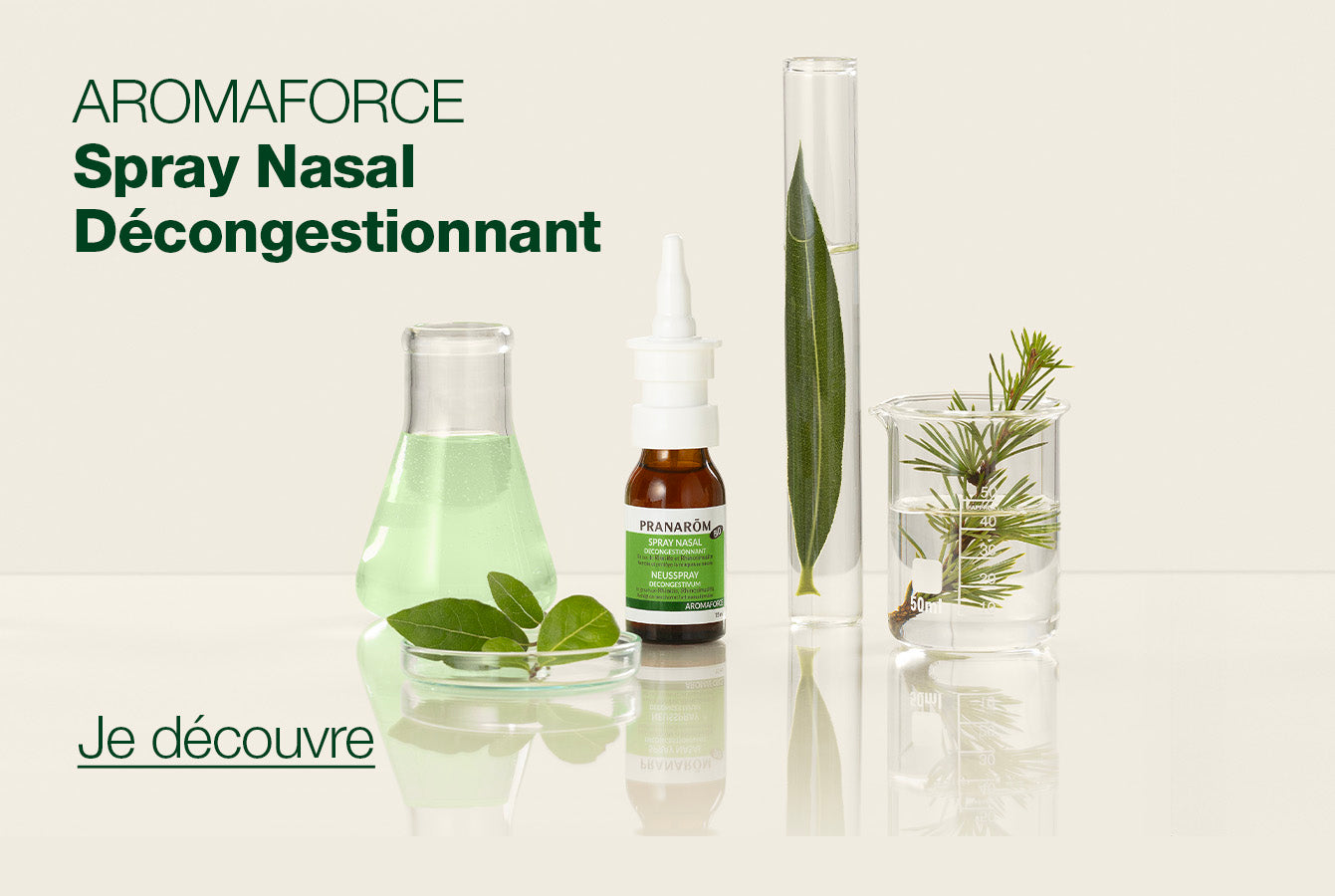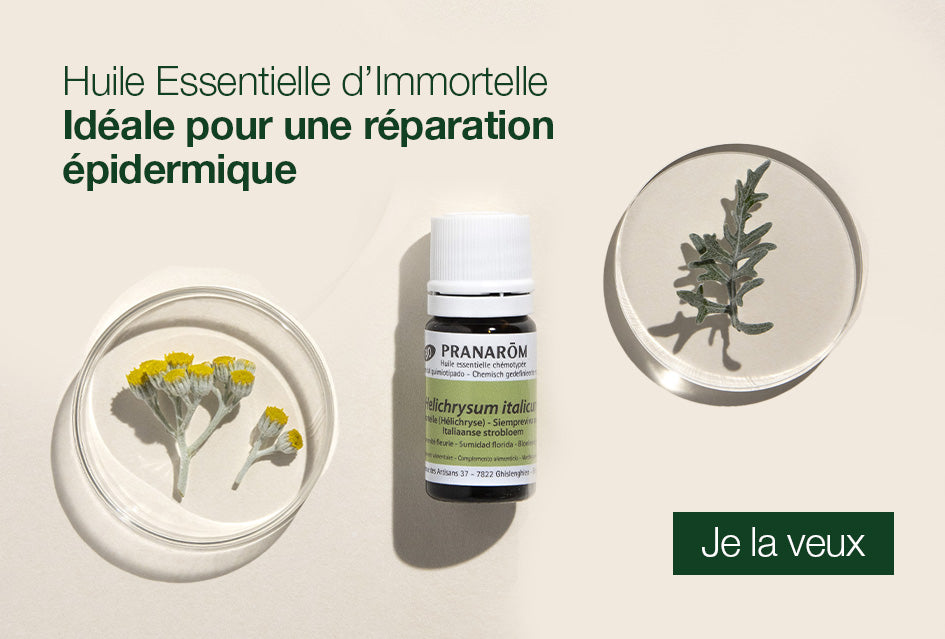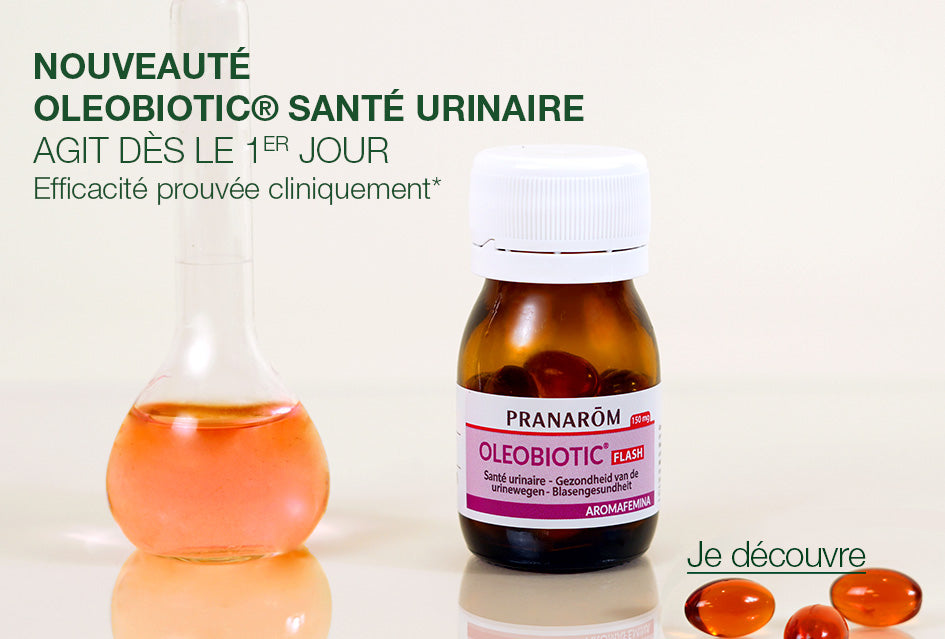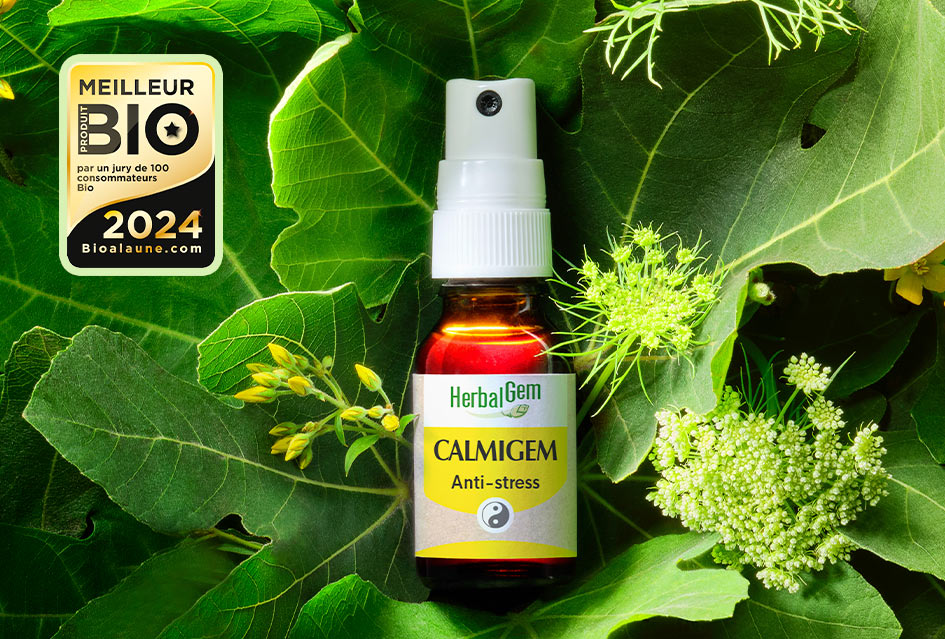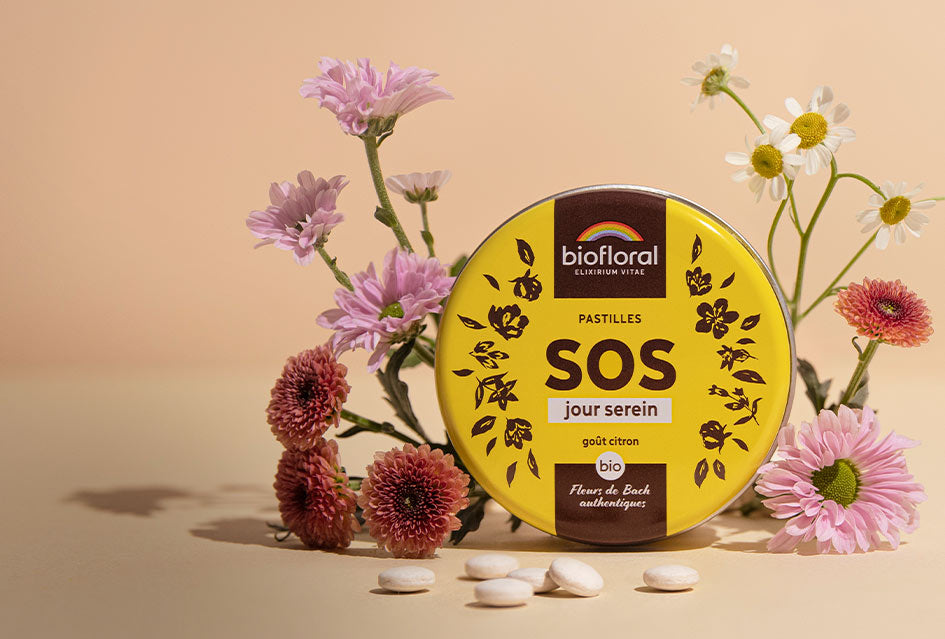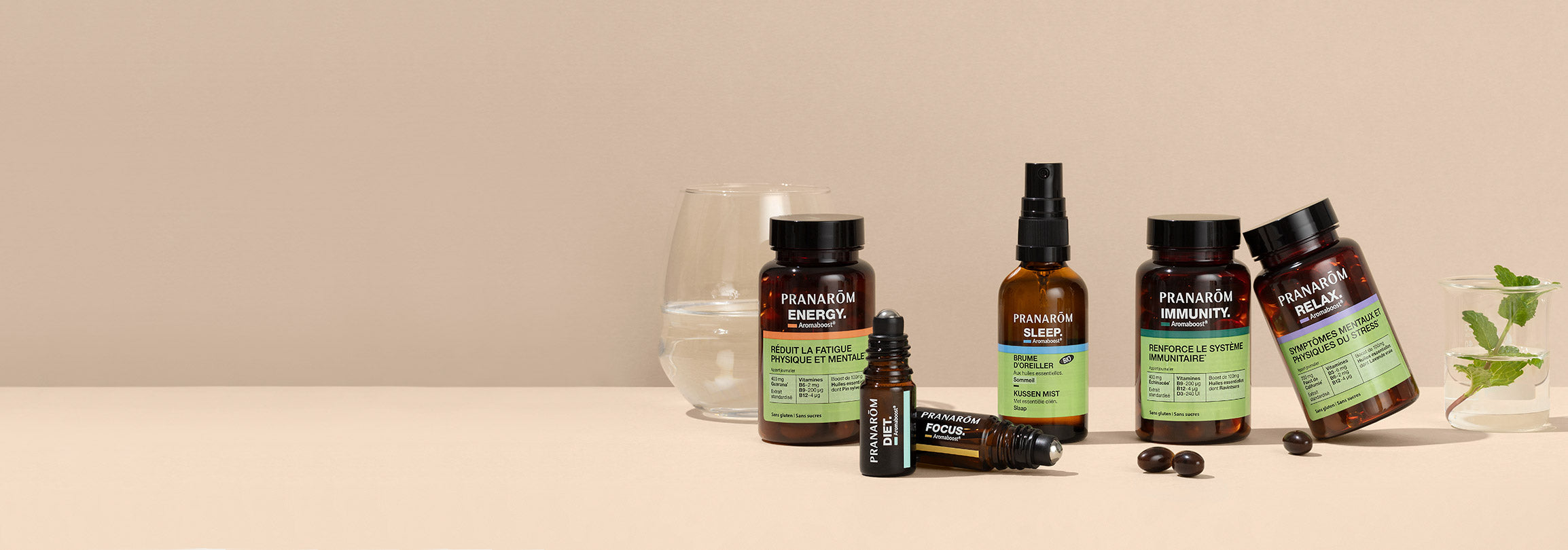How to reduce excess sebum naturally?
Excess sebum: how can essential and vegetable oils help you?
Excess sebum, or hyperseborrhea , is a common skin condition that can lead to skin problems, such as clogged pores and acne . While sebum is essential for skin hydration and protection, excessive production disrupts its balance. Let’s find out how essential oils and plant oils can help you reduce excess sebum naturally and restore your skin’s balance.
What is excess sebum?
Sebum is an oily substance produced by the sebaceous glands located in the dermis of the skin. Its main function is to protect the skin by forming a lipid barrier .
This protective layer has two main roles:
Prevent dehydration by retaining water;
Protect the skin against external aggressions (bacteria, fungi, microbes, etc.) thanks to its slightly acidic pH.
When the sebaceous glands produce too much sebum, the skin becomes too oily , the pores enlarge , and skin blemishes can appear.
This excess sebum can be caused by:
Genetic heritage;
Hormonal imbalances;
Stress and anxiety;
Poor diet;
External aggressions: UV, pollution, tobacco and alcohol;
The use of inappropriate cosmetic products.
The increase in temperature also causes the production of sebum, as the body uses it to protect the skin from UV rays and maintain hydration.
Which essential oils should I use in case of excess sebum?
Here is a selection of the most recommended essential oils to combat excess sebum, purify the skin, and prevent imperfections.
Tea tree essential oil
Tea tree essential oil is one of the most effective essential oils against acne . Thanks to its antibacterial and antiseptic properties , it helps to:
Disinfect the skin;
Reduce inflammation;
Prevent the appearance of new imperfections.
Optimal use:
Skin application : Mix 2 to 3 drops of Tea tree essential oil with a light vegetable oil such as Jojoba oil. Apply the mixture to problem areas, such as the T-zone (forehead, nose, chin), once a day.
Moist inhalation : For a general purifying effect, add a few drops to a bowl of hot water and inhale the steam for 5 to 10 minutes.
Contraindications : Tea tree essential oil is not recommended for pregnant women, children under 6 years old, and people with very sensitive skin. A skin test is recommended before any application.
True Lavender Essential Oil
True Lavender essential oil is known for its soothing and regenerating properties . It helps oily skin to:
Balance sebum production;
Soothe skin irritations;
Reduce stress (another factor in excess sebum).
Optimal use :
Skin application : apply 2 drops of true lavender essential oil diluted in a non-comedogenic vegetable oil such as hazelnut oil, and gently massage over the entire face before bed.
Diffusion : For a relaxing and purifying effect, diffuse 5 to 10 drops in the room for 30 minutes before sleeping.
Contraindications : even if it is generally very well tolerated, true lavender essential oil is not recommended for pregnant women under 3 months and infants under 3 months.
Lemon Tree Essence
Lemon Essence is a powerful natural astringent . It helps to:
Tighten pores;
Reduce sebum production;
Lighten the complexion.
Its antiseptic properties help prevent skin infections.
Optimal use :
Skin application : mix 2 drops of Lemon Essence with 1 tablespoon of jojoba oil and apply to oily areas. Use in the evening to avoid sun exposure and its photosensitizing effect.
Inhalation : Add a few drops to a diffuser to purify the ambient air and benefit from its invigorating properties.
Contraindications : Lemon Essence is photosensitizing. Avoid sun exposure for at least 12 hours after applying it to the skin. It is also not recommended during the first three months of pregnancy and for babies under 3 months old. Do not use pure on the skin.
Ylang-Ylang essential oil
Ylang-Ylang essential oil is particularly effective in balancing sebum production . It helps regulate combination to oily skin, while providing a touch of softness and relaxation thanks to its exotic and floral scent.
Optimal use :
Skin application : dilute 2 drops of Ylang-Ylang essential oil in hazelnut oil and apply the mixture to the entire face, focusing on the oiliest areas.
Diffusion : Diffuse 5 to 10 drops in a room for a relaxing and balancing effect.
Contraindications : Ylang-Ylang essential oil should be used sparingly, as it can be irritating if applied excessively. A skin test is recommended. It is not recommended for pregnant and breastfeeding women and infants under 3 months.
By using these essential oils regularly, you will be able to regulate sebum production and improve the appearance of your skin.
Discover our “Les Indispensables” collection: a selection of essential oils, vegetable oils, hydrosols and finished products designed to preserve the beauty and health of your skin in a natural way. Whether you are looking to regulate excess sebum or deeply moisturize dry skin, our natural cosmetic products offer solutions adapted to all skin types.
Excess sebum, which vegetable oil should you turn to?
Vegetable oils are ideal bases for diluting essential oils, but they have their own regulating properties for the skin. Some of them are particularly suitable for oily and acne-prone skin.
Jojoba vegetable oil
Jojoba vegetable oil is often considered the best oil for oily skin because of its similar composition to human sebum:
It naturally regulates sebum production;
It moisturizes the skin without making it greasy;
It does not clog pores (non-comedogenic).
Optimal use :
Skin Application : Use jojoba oil as a daily moisturizer by applying a few drops to clean skin. You can also use it as a base to dilute essential oils.
Moisturizing mask : mix jojoba oil with green clay to create a purifying and regulating mask to apply once a week.
Hazelnut vegetable oil
Vegetable oil Hazelnut oil is a light oil that easily penetrates the skin without leaving a greasy film. It is particularly effective for:
Tighten pores;
Balance sebum production;
Soothe irritated skin.
Optimal use :
Skin application : Apply a few drops of pure hazelnut oil to the face after cleansing to moisturize and regulate sebum.
Night serum : mix hazelnut oil with a few drops of lavender essential oil for a balancing night treatment.
Argan vegetable oil
Rich in vitamin E and essential fatty acids, Argan vegetable oil deeply nourishes the skin while regulating sebum production. It is ideal for combination to oily skin that needs intense hydration without clogging pores.
Optimal use :
Skin application : Apply a few drops of argan oil to the face after cleansing to moisturize without weighing down the skin.
Anti-aging treatment : Mix argan oil with geranium essential oil for an anti-aging treatment that also regulates sebum.
Nigella vegetable oil
Vegetable oil Nigella is known for its anti-inflammatory and purifying properties . It is ideal for helping acne-prone skin to:
Regulate sebum production;
Soothe inflammation;
Prevent skin infections.
This oil is also rich in antioxidants , which makes it a very good choice for protecting the skin from external aggressions.
Optimal use :
Skin application : apply pure or diluted black seed oil to the face after cleansing for a purifying and regulating effect. You can also use it as a localized treatment on pimples to speed up their healing.
Purifying mask : mix black seed oil with green clay and rose water to create a purifying mask to apply once a week.
Nourishing night serum for combination to oily skin
Also enjoy the unique benefits of Sea Buckthorn oil with this natural night serum:
1 drop of Sea Buckthorn vegetable oil ;
1 drop of Jojoba vegetable oil;
1 drop of Nigella vegetable oil;
1 drop of Tea Tree essential oil .
Each oil featured offers benefits that help rebalance oily or combination skin and deeply nourish it without weighing it down. It is important to use these oils regularly to get the best results!


